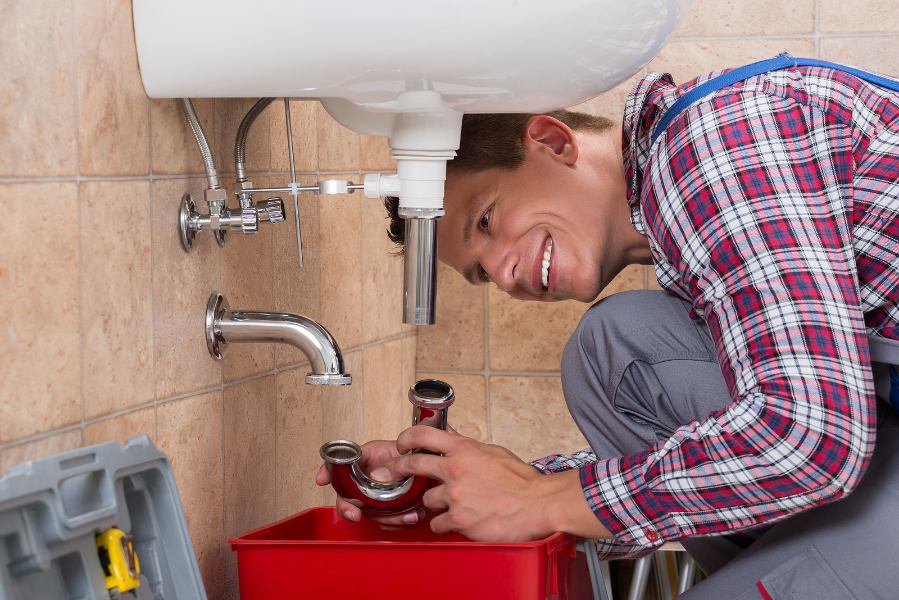Menu
Call This Friday to Get $50 Off
Do You Need a Plumber in Dallas, TX? Call us Now to Get $50 OFF
4.8 / 5 Ratings based on 1384 reviews Great Plumbers, Great Reviews
Call This Friday to Get $50 Off
For an enthusiastic DIYer, tackling home improvement projects comes with a sense of accomplishment. However, it’s important to know your limits. Some tasks are best left to professionals. Today, we will look at some of the plumbing jobs you can tackle yourself and the ones that need professional intervention.

You can use a plunger, a drain snake, or a combination of baking soda and vinegar to clear minor clogs caused by food scraps, soap scum, hair, or grease accumulation. However, deeply embedded clogs and those caused by intruding tree roots and pipe damage need professional intervention from skilled plumbers.
In most cases, you don’t need to call a plumber to help you repair a leaking faucet. A leaky faucet can often be fixed by tightening the packing nut or replacing a worn-out washer, or the cartridge inside the handle. If the faucet issue seems complex, beyond a simple fix, or you're uncomfortable tackling it yourself, call a plumbing repair service for a safe and reliable solution.
A showerhead is fairly easy to replace, as long as you have the necessary tools. You’ll need an adjustable wrench and plumber’s tape to replace a showerhead. Simply loosen the nut connecting the showerhead to the shower arm and screw the new one by hand. Then, use the wrench to tighten it further, but be careful not to overtighten and damage the threads or finish. In some cases, things can get complicated due to unexpected damage or parts mismatch. Don’t be afraid to seek help from a professional plumbing service if you encounter challenges during repairs.
A faulty flapper valve is the main culprit behind a constantly running toilet. Replacing the flapper is a simple DIY task that can stop the water waste and restore your toilet to good working order. Here are the steps to follow to replace a toilet flapper:
Large leaks, especially those originating from hidden pipes or behind walls or appliances, require a plumber's expertise to diagnose the source and implement a proper repair to avoid further damage.
Water heater installation involves plumbing connections, gas lines (for gas-powered models), and safety considerations. Leave this task to a licensed plumbing service to ensure proper installation and avoid potential hazards.
Replacing damaged pipes, especially if they are embedded in concrete or walls, requires knowledge of the plumbing system and proper tools for cutting, soldering, or welding pipes. A professional plumbing repair service can handle this task efficiently and safely.
Other plumbing tasks that should be left to a trusted plumbing repair service include:
If you need help with complex plumbing repairs that you can’t handle yourself, call the pros at Mr. Rooter Plumbing. Whether it be water line repair, sewer repair, sump pump replacement, or leak detection, we have the knowledge, experience, and state-of-the-art tools to do an excellent job. We’ve been offering outstanding plumbing services since we opened our doors in 1970. Our highly trained, licensed, and insured plumbers are committed to ensuring our customers are fully satisfied.
Dealing with a clogged toilet when a plunger isn't available can ruin your day.…
Read More+Keeping your laundry drain free from clogs is essential for a smoothly running home in…
Read More+Whether you have a toilet replacement in Dallas, TX or bathroom renovation, choosing the…
Read More+Let’s talk about something that might come as a surprise to many homeowners and business…
Read More+